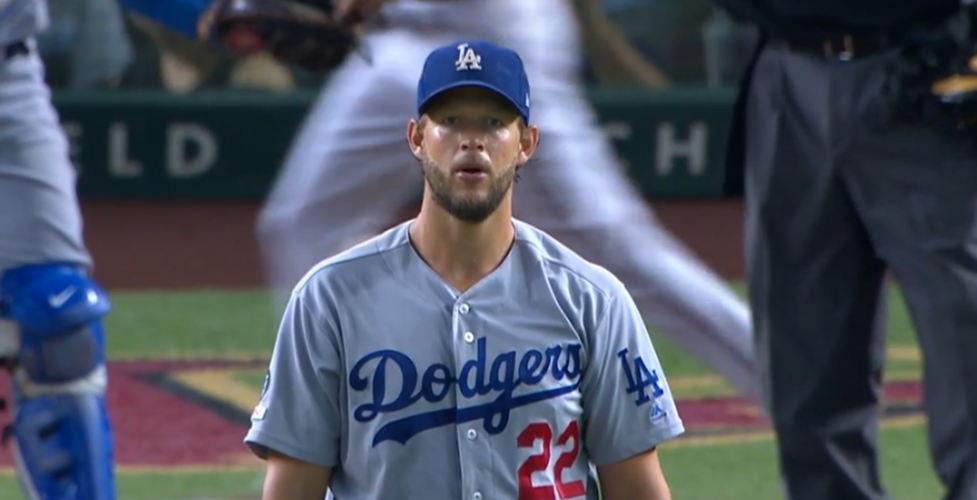It’s easy to blame Clayton Kershaw for the Dodgers and Nationals NLDS series being tied at one game apiece. While he was decidedly mediocre last night, he isn’t the sole reason. Unlike times in the postseasons past that have been predominantly his fault (hi, Game 5 of the 2017 World Series, written by yours truly), that wasn’t the case last night.
Despite the rough start to the game, he turned in a quality start — six innings pitched, three earned runs or fewer. It may not feel like he, but he kept the Dodgers in the game. Unfortunately, Stephen Strasburg was on one last night and the Nats’ were gutsy (or desperate, or a little of both) to throw presumed Game 3 starter Max Scherzer in the eighth inning. And yet, the Dodgers still had a chance to win the ballgame in the ninth inning. But, also like postseasons past, the offense failed to come through. I’d argue that’s a much bigger concern than a pitcher giving up three runs in six innings.
——
The Dodgers struck out an astounding 17 times last night. The doubled up their season-average of 8.37 strikeouts per game. That’s not going to win many games in the regular season, let alone the postseason. You have to credit Nationals’ pitching, but at some point, this offense has to perform.
It’s weird to say that after scoring six runs in the first game, but even that game wasn’t really decided until the seventh inning when the Dodgers went up 4-0.
There’s a lot of blame to go around. Kershaw, sure. The defense, absolutely. But the hitters were putrid last night.
Cody Bellinger doesn’t have a hit through the first two games and missed a hittable fastball with Turner at second in the ninth. A.J. Pollock is also hitless, though, his plate appearances have been less encouraging. Corey Seager is 1-for-8 and struck out with the bases loaded last night in the ninth. In last night’s game, those three had -.153, -.148 and -.240 win probability added marks, respectively. Kershaw was only at -.106, if you were wondering.
Bellinger and Seager — the offensive cornerstones of this franchise — have been completely neutralized in the playoffs. In his last 73 postseason plate appearances (since Game 6 of the 2017 World Series; arbitrary endpoints), Bellinger is hitting .091/.178/.152 (with an NLCS MVP mixed in). That translates to -.800 WPA. Seager’s struggles are a little less pronounced, mostly because he hasn’t played as much as Bellinger has using the same endpoints. Since Game 6 of the 2017 World Series, Seager is 2-for-15 with a -.317 WPA. If you want to include his entire 2017 postseason (and the first two games of the 2019 postseason), he’s hitting .217/.315/.348 with a -.264 WPA. For shiggles, Kershaw’s WPA since the start of the 2018 postseason is -.046 — not great, but not nearly as bad as Bellinger and Seager.
The Dodgers scored the most runs in the National League. They gave up the fewest in all of baseball. It’s a really good formula. One they should employ in the postseason.
—–
It’s easy to blame Kershaw and yes, it’s frustrating as all hell watching him struggle in October. He should be better. He should have been better in the past. Prime Kershaw isn’t walking through that proverbial door. The best we can hope for is a guy who keeps the team in the game, with the occasional above-average performance. That’s who he has been over the last couple seasons. Coincidentally or not, that’s exactly the version of Kershaw we’ve seen throughout his postseason career. Because of this, the rest of the team is going to have to step up, but especially the offense.
If you want to blame Kershaw, fine — that’s your prerogative. He’s partially to blame, but the offense is more to blame for last night’s loss than anything Kershaw did last night.
 Dodgers Digest Los Angeles Dodgers Baseball Blog
Dodgers Digest Los Angeles Dodgers Baseball Blog
